Tom Petty: ‘Eye’ Wide Open
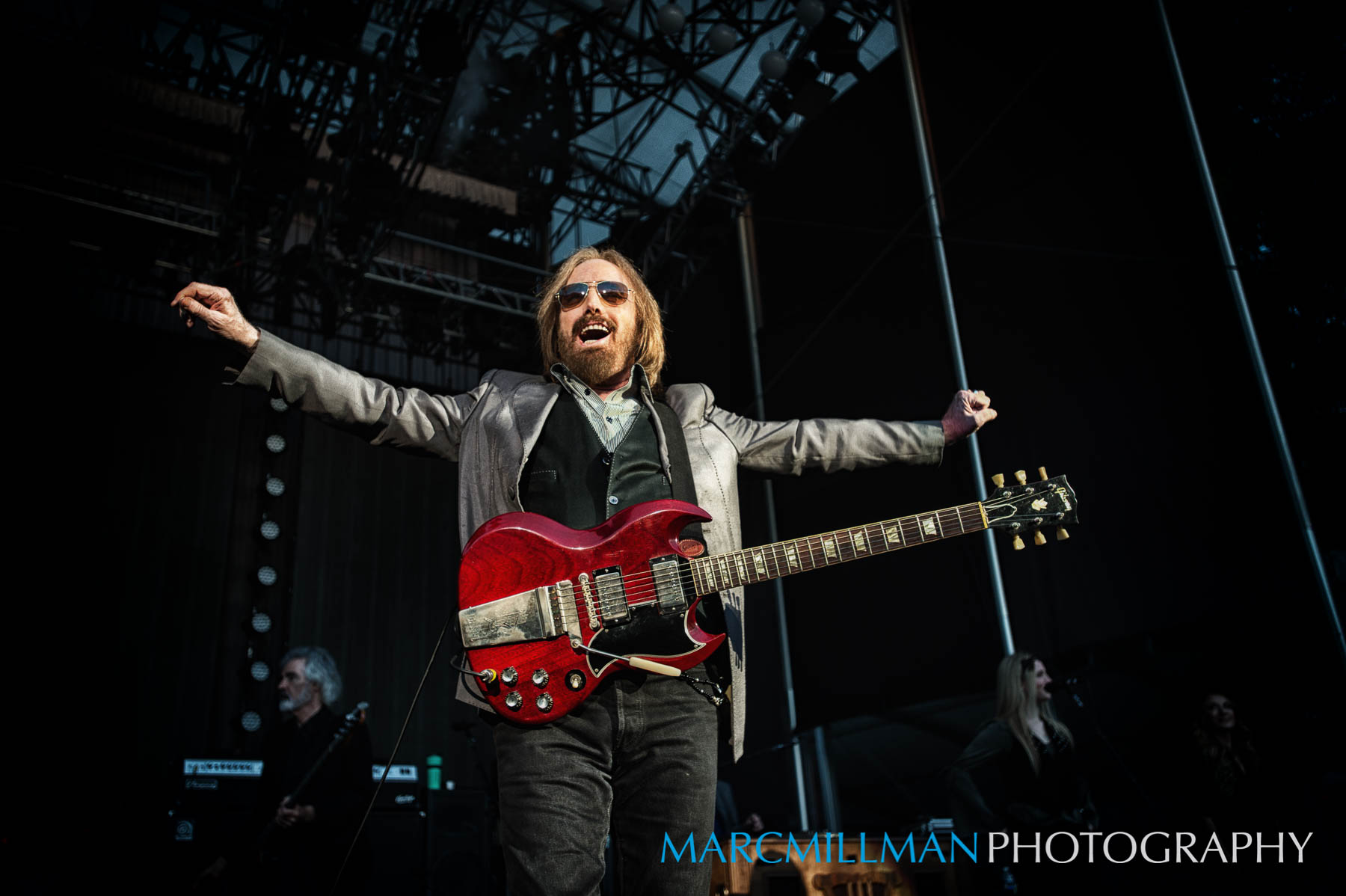
In light of the untimely passing of the legendary Tom Petty, we share our September 2014 cover story with the iconic singer-songwriter.
“There’s no blueprint for this,” says Tom Petty. “I never pictured doing it this long, especially at this level. But I have to think, ‘Wow, that’s really cool, so what am I going to do about it? Do I just roll around and play my greatest hits for millions, or do I try to get better?’”
The sign outside the door of the studio at Petty’s house in Malibu reads: “Beware of Cranky Hippie.” But while the 63-year-old Rock and Roll Hall of Famer still proudly claims his affiliation as a hippie, he’s not so much cranky—on this day, at least—as he is fired up with excitement about his new album, Hypnotic Eye, and with outrage, about the state of our society.
Though he’s never been considered a protest singer, Petty’s songs have always been keenly observed examinations of American life, with a strong sense of the struggle for justice and dignity faced by average folks. Perched on a sofa underneath the Robert Deyber painting of a spaceship in the desert that was used on the cover of his 2006 album Highway Companion, sipping coffee and taking occasional drags on an e-cigarette, Petty settles in for a conversation that ranges across his past and his future, his vision for the new album and his sense of the responsibilities that come with being an artist.
“You can only write about what’s in front of you,” he says. “On this album, I used a number of different characters, but I was just trying to create a look at things, and how I saw it. Hypnotic Eye is that eye that’s hypnotizing the public into making some really strange decisions. We’re all looking into our palms or across a desk or at a TV—I saw them as eyes. And there’s a lot of really polluted information and propaganda, and there seems to be no length that the people who are really wealthy won’t go to make more money. So it was about, how much is enough? Would you destroy the very ground you and your kids are on to make money that won’t change a single day of your life?
“If you want to put the world’s situation into one word, it’s greed. So that gave me a lot to write about. How the middle class has vanished and the people that don’t ever have a shot at making any money still think they should have a swimming pool and clothes like the Kardashians—that’s propaganda. It’s clear and simple brainwashing by bad people.” 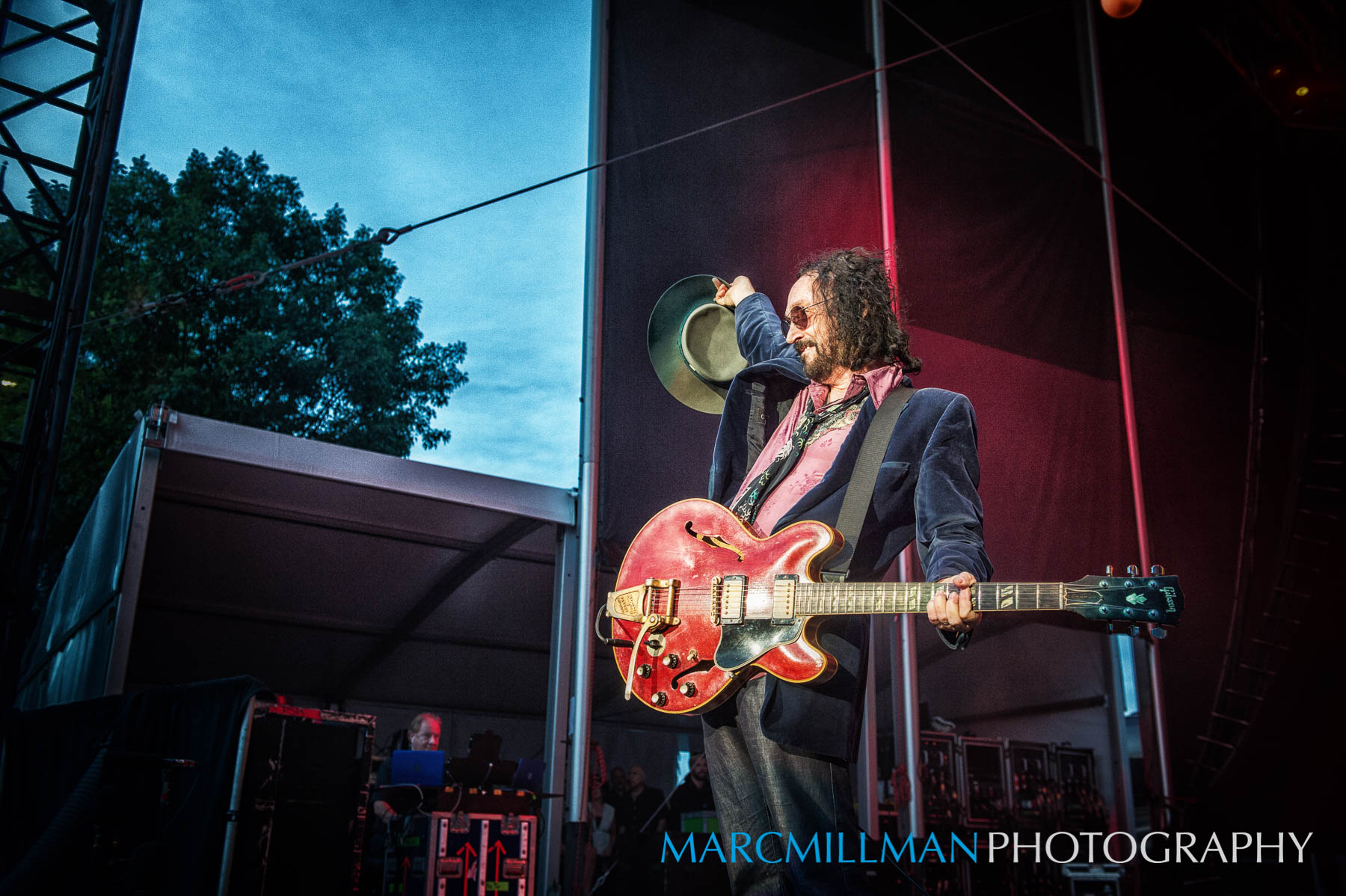
Hypnotic Eye is Petty’s 19th studio album—his 13th backed by the mighty Heartbreakers, plus solo projects and records with the allstar Traveling Wilburys and his reunited first band, Mudcrutch— and in 38 years, his sales total more than 80 million. He has worked alongside heroes of his own, including Bob Dylan, George Harrison and Johnny Cash. Yet to a degree matched by very few of his contemporaries, he has retained a commitment to moving forward, challenging himself and resisting the urge to coast on his stardom.
“I think what we can offer is to try to show growth at this point in our lives,” he says. “A lot of people just give up and do retreads of what they’ve done before, or I can tell they’re not really trying, that they’re distracted by other things. And everything is in the shadow of those 30 hits you have, those really big songs. Everything has to compete with that. So I just have to think, ‘Well, this is as good as that. What I’m doing now is as quality work as what I was doing then, or I’m not going to put it out.’”
In the case of the new album, that meant recording over the course of three years in search of a sound that took him back to the original spirit of the Heartbreakers. “I thought the world needed a good rock-and-roll record,” says Petty. “It’s been a while since we did one top to bottom like that—just a super-rocking guitar record. Mudcrutch (2008) was a bit on the country side, Mojo (2010) was more on the blues side, and this is more straight down the middle. I’ve heard from a few people that it feels like a throwback to those days of the late ‘70s, early ‘80s. [Guitarist] Mike Campbell told me, ‘Your singing sounds like the first couple of albums to me—that kind of desperation—and I like it.’”
The song that kicks off Hypnotic Eye, “American Dream Plan B,” helped establish the album’s direction. “My mama so sad, daddy’s just mad/ ‘Cause I ain’t gonna have the chance he had,” Petty snarls over a jackhammer beat. “Here’s this kid and he has a dream, but he has very high odds against it happening,” he says. “And he knows that, but he’s taking solace in his girl and he’s got this attitude of, ‘Fuck it, I’ve got nothing to lose. I’m going to go for it.’
“I thought that set the tone for the whole thing because we’re all in that position—the cards are stacked pretty high against us all right now but what can we do but press on, push against it? Once I had that one, it kind of all started to make sense. I didn’t want to get carried away but I wanted to keep that theme going.”
The titles let you know where the album is headed—“Power Drunk,” “Burnt Out Town,” “Shadow People.” The lyrics speak of betrayal, disappointment; even the love songs have a sense of doubt and foreboding. The mood recalls the title of Petty’s 1981 album Hard Promises—what happens when those promises are broken?
But Petty adds that, as serious as his intentions were, the making of Hypnotic Eye was enjoyable and rewarding, with all the contributions you might expect from one of the world’s finest bands. Even after all this time, the sessions were full of surprises and camaraderie. 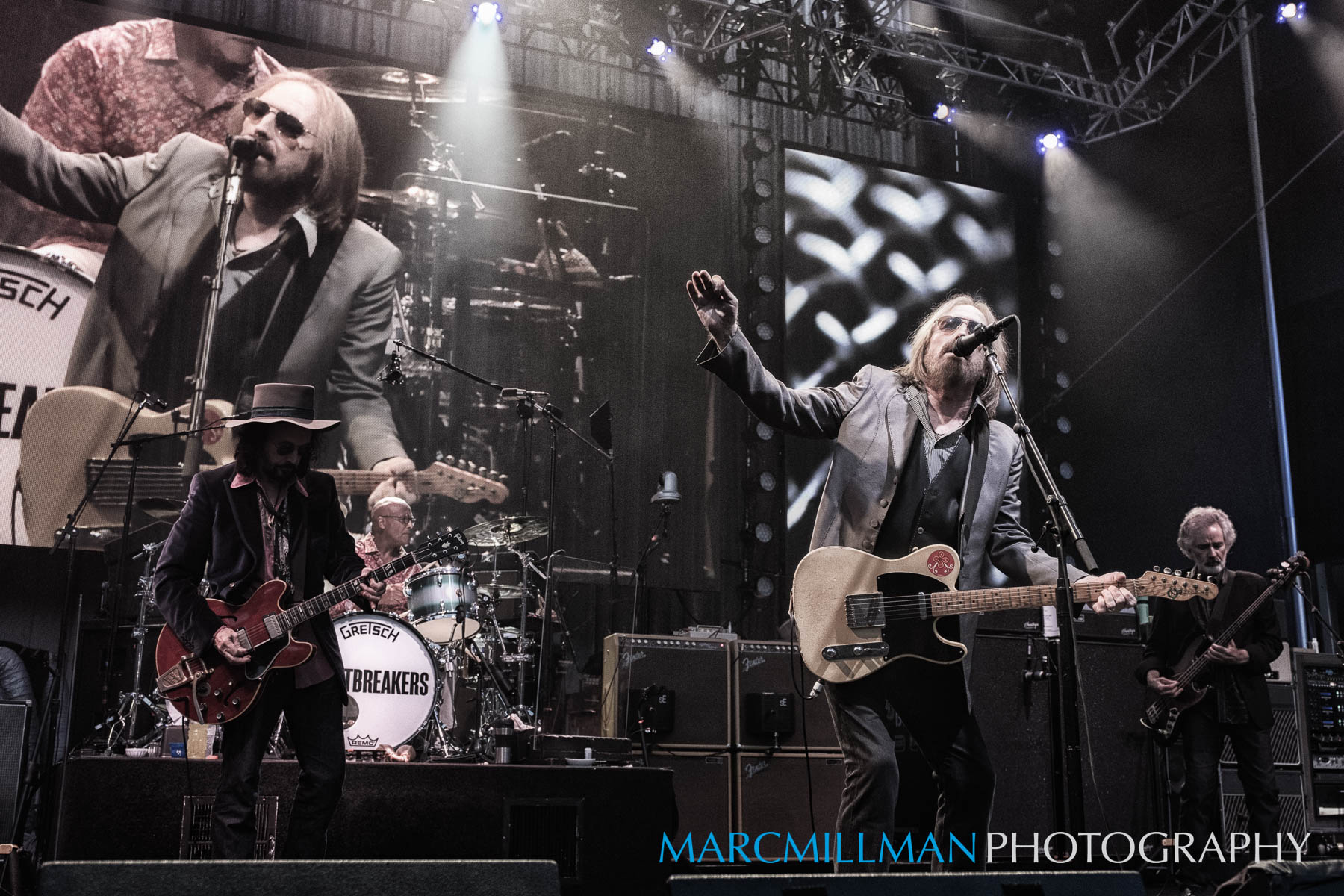
“We had the hardest time cutting the song ‘Sins of My Youth’ because the beat I had in my head was just terrible—it was just a bad idea and we kept playing it again and again, and it just would not work,” he says. “We played it all afternoon, and we were sitting there with our instruments on and we all started talking over the mics. I was telling them about how, in junior high, in PE class, they took us all out on the courtyard of the school and they put all the boys on one side and the girls on the other, and they were going to teach us to dance. And of course, nobody wanted to be the guy to walk out there and dance with whatever girl they assigned you.
“We were all laughing about that and I said, ‘Yeah, and the track was Eydie Gormé singing ‘Blame It on the Bossa Nova!’ And they all cracked up and I started playing it, and the band kicked into that— and I went, ‘That’s the beat! Try it like that!’ And we had one take like that, and that was it.”
“The waiting is the hardest part.” “Even the losers get lucky sometimes.” “I won’t back down.”
Those lines don’t look like much on a page, do they? Simple words, simple sentiments. But in the hands of Tom Petty, these lines have become the building blocks for songs that are indelible, anthemic— even profound. Throughout his career, this concision and deceptive simplicity has exemplified his songwriting. There may not be a rock song with a better first line than, “She was an American girl/ Raised on promises”—a novel contained in 13 syllables.
“His writing is very conversational, but there’s a complexity that’s easy to overlook if you’re not paying attention,” says acclaimed singer-songwriter—and former member of the Drive-By Truckers— Jason Isbell, who has participated in the loose Petty Fest tribute shows that have been held over the last few years in New York, Los Angeles, Austin and other cities. “They sound like things that could be overheard in a bar or at a show, but the more you hear them, the closer you listen, the more they open up into deeper meanings.”
“Yeah, people think it’s simple until they try to do it!” Petty says with a laugh. “Some of the stuff is really much more complicated than they realize. Lyrically, I’m just trying to get better; that’s my quest. I want to grow that part of what I do. I feel like I’m succeeding to some degree, but there’s still more I want to do. I’ve gotten to the place where I really think one wrong word can sink the whole song. You have to be really vigilant, because just one wrong word in the wrong place can just sink it. There’s no recovery—you’ve lost the listener and they’re not coming back.”
It may not have been obvious at the time, but this dedication to songwriting (and a parallel sense of musicianship) has been the essence of this band since Tom Petty & The Heartbreakers was released in 1976. At the time, no one was quite sure where these Florida boys fit into the music landscape. Were they old-school rockers or part of the New Wave scene? (Their first New York City show was at punk mecca CBGB.) “Breakdown” gave them a mid-level hit, and helped their popularity explode in England, but it was their third album, 1979’s near-perfect Damn The Torpedoes, that established them as superstars.
Along with the solid-steel songs and passionate performances, Petty also became known for his sense of integrity. After the band’s first label was sold to MCA, he finally understood that he had signed away his publishing rights; declaring bankruptcy and risking that Torpedoes would never be released, he took the label to court and won a groundbreaking case that protected artists in the future. With that victory behind him, he then refused to put out the followup album, Hard Promises, until the label agreed not to use the record as a test case for higher prices.
Petty believes that part of his longevity has come from knowing when to say no to promotion and publicity. “I think we just did some things right by what we didn’t do along the way,” he says. “I think we knew not to give People magazine the time of day, not to be interested in American Bandstand and Solid Gold and all these crappy shows, trying not to take the cheesier gigs. And there will always be people telling you it’s really important to do those cheesy things, but you just walk away and don’t do it. My attitude was always that it may be important but it ain’t worth it to me; I’ve gotta look at myself in the mirror. 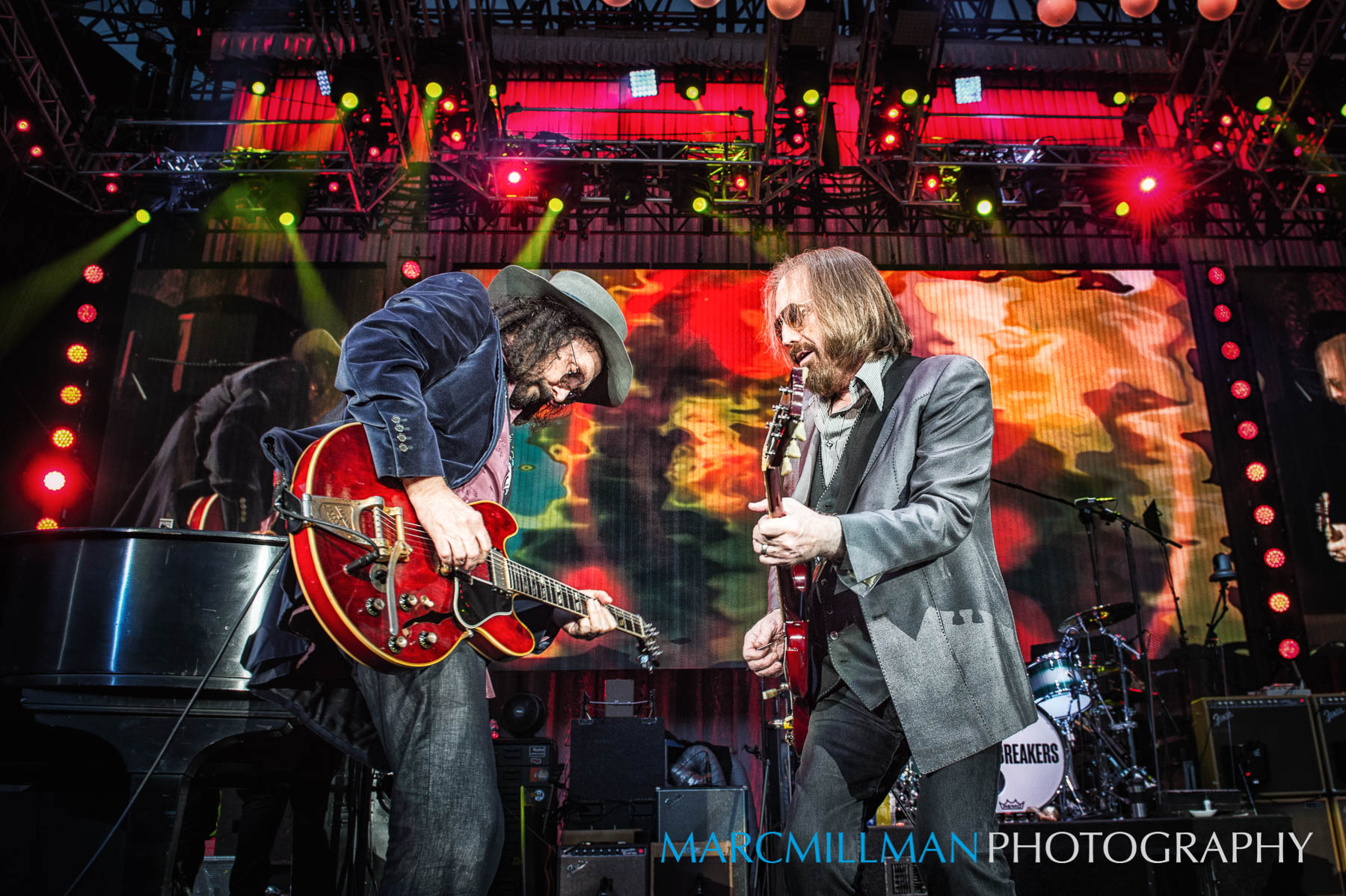
“I still frustrate my management office to a great degree because I won’t go after every dollar that’s offered. We’ve done really well, but money has never been the driving force behind what we do. Beyond having a place to sleep and something to drive, that wasn’t what we were aiming for—we didn’t mind it, of course, but the goal was just to be a good band that people liked. And I think, if you do that, the rest of everything will fall into place. But to this day, we turn down a lot of things that we could do, that would be very financially rewarding, but I just don’t want to do it.”
“At the end of the day, it’s always Tom’s choice,” says Campbell, “and with the label or management, he has good antenna for weeding out bullshit and phoniness and keeping everything honest, true, real.”
One area where Petty did play along with the music business machine, though, was his embrace of music videos. Where other rock artists resisted MTV, or grudgingly did the minimum required, he created such unforgettable clips as the psychedelic Alice In Wonderland treatment of “Don’t Come Around Here No More,” and the cautionary Hollywood tale of “Into the Great Wide Open,” starring Johnny Depp and Faye Dunaway. This phase not only won him a “Video Vanguard” Lifetime Achievement Award from MTV, but it also directly helped him become one of the biggest stars of the ‘80s.
“I looked at it like, ‘If we have to do these things, let’s try to make them little pieces of art, little good short films, and let’s ignore all the rest of these awful things on television’—and that wasn’t hard because most of them were so bad, it was easy to do something better than that,” he says. “I think we usually did pretty good, but I’m glad we got out of that. It got to be a pain in the ass; it just got time-consuming and really expensive and it’s not what I wanted to be doing. It was necessary—it was the biggest radio station in the world and you had to put your song on there. And if you were going to do it, you didn’t want to put a bunch of Playboy Playmates and some shocking pink colors and hair spray. It was just silly, most of it. When you look back at that stuff, it’s just as horrifying as it was then. It doesn’t get better with age. It gets worse, maybe.
“I think MTV was Satan. It didn’t do anything good for anybody, and it really poisoned the water, as far as the music business was concerned. It made us a lot of hit records, and I couldn’t ignore it—I think if I had, we wouldn’t have lasted.”
Accompanying him through all these escapades has been the airtight versatility of the Heartbreakers. Though Steve Ferrone replaced Stan Lynch as the drummer in 1994, and original bass player Ron Blair left the band—and the music business—only to return when his replacement, Howie Epstein, died of a drug overdose, virtuoso guitarist Mike Campbell and keyboard giant Benmont Tench have been at Petty’s side since the early days in Gainesville.
The structure of Tom Petty & The Heartbreakers is rare these days: Though the early days of rock and roll were full of groups like Bill Haley and His Comets or Gene Vincent and His Blue Caps, now, the format of a frontman and a set of featured players has given way to a clean division between a band and a solo act.
“I never really wanted to be up front in the band at all, and it took me quite a while to feel comfortable with it—I’m still not sure that I am,” says Petty. “I was the bass player, but I was the one with the record deal and the record company wanted me up front. So I went, kind of hat in hand, to [famed producer and head of Shelter Records] Denny Cordell and said, ‘These are my buddies from Florida and we want to be a band.’ And he said, ‘Fine, but your name’s got to be on it. You’re going to be the writer and the singer anyway, right?’ I didn’t really understand all that entailed at the time, but that’s the way it went.
“But the band doesn’t treat me any differently from how they ever did, they’re not the sort of people to say ‘OK, he’s the guy who says what goes.’ I think they indulge me a lot of the time, but they’re very quick to tell me if they don’t agree with me or if they have a better idea. So in our minds, we don’t really see a difference between us and a band like the Stones.”
“We are a bit of an anomaly—kind of a hybrid,” says Campbell, who Petty describes as the “co-captain” of the group. “We’re a band in many ways, but we also have a leader who’s a great leader, and he will assert his will, and we’ll go with that because he’s usually right. The egos are all in balance. We apply ourselves to make each song the best we can and that fulfills us. Occasionally we get into it, like brothers do, but that’s just because we’re striving for greatness.”
“You can hear that they want to be there, and you always get the sense that they’re capable of doing more than they reveal,” says Jason Isbell, who models his own bands after the ideal of the Heartbreakers. “They always play for the song first and foremost— it’s not even that they’re backing up Tom, so much as they’re backing up the songs he’s written.” 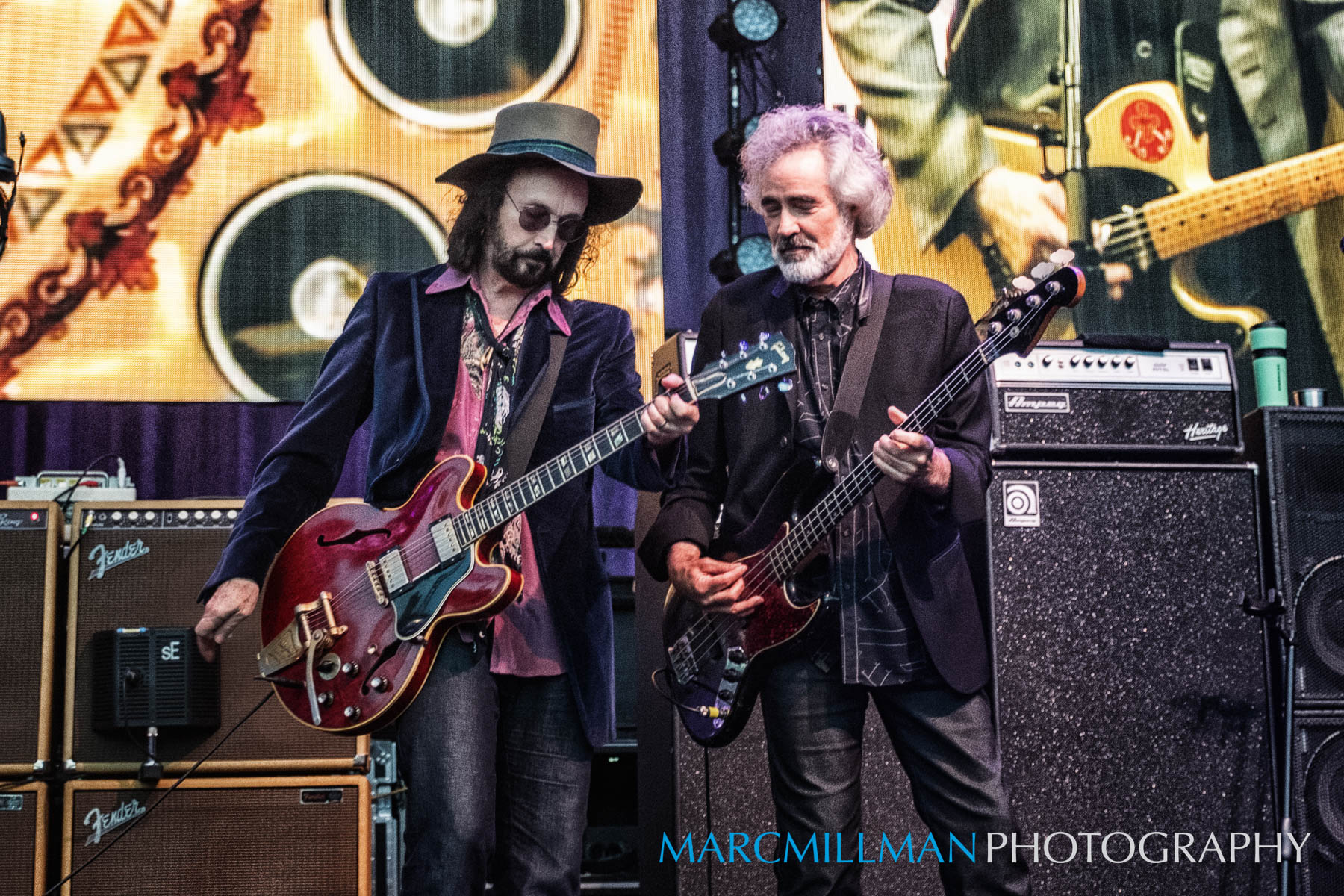
Even after all these years, Petty clearly remains excited by the potential that his band still offers. “What’s cool is that we’re quite good musicians now—much better than when we made, say, Damn The Torpedoes,” he says. “I love the studio more every week than I ever have. I don’t see myself quitting that part of it for a long time. I don’t think you’ll see us do a lot of long tours; we’ll more kind of hit and retreat. I’m just sick of traveling. I traveled since I was a very young man—a lot—and I want to have the time to create in the studio because I’ve seen that what you do there lasts. And that’s cool to me, that feeling that I’m doing something that’s going to be around a lot longer than me.”
During the last decade, Petty has spent a lot of his time, and devoted much of his work, to taking stock of things. In 2007, director Peter Bogdanovich assembled Runnin’ Down a Dream, a four-hour-long documentary dedicated to Petty’s career. The movie inspired the singer to chase down Randall Marsh and Tom Leadon from his first band and, the next year, after the Heartbreakers played a well-received set during the Super Bowl halftime show, Mudcrutch released a debut album more than 30 years after they had broken up.
“That record was one of the most pure records I’ve ever been involved with,” says Petty. “I really liked that record, and I love being with those people—a very happy bunch of people and old, old friends. There’s nothing like being friends and being in a band, that’s the most attractive part of it to me. When I saw The Beatles on Ed Sullivan, I’d think, ‘Those guys look like they’re all friends and they’re having such a good time.’ And that’s really important to be a good band.” When the current Heartbreakers tour is over, the plan is to make another Mudcrutch album.
Last year, Petty explored his catalog in a different way, playing multi-night stands at the Beacon Theatre in New York and the Fonda Theatre in Los Angeles and performing much more varied sets than the usual hit-driven arena show. The results ranged from revelatory (the magnificent, largely forgotten “Billy The Kid,” from 1999’s Echo) to chaotic (a version of Chuck Berry’s “Carol” that saw the band start playing in several different keys) to the completely unexpected (a take on the Grateful Dead’s “Friend of the Devil” that had been shelved since the ‘90s).
“We learned about 60 songs very fast for that,” he says. “There’s so many, you forget—they brought me a list of everything, a book on a music stand, and we would just go through it alphabetically and literally go, ‘Oh, that was a good one. Let’s try that one!’ ‘Ooh, ‘Nightwatchman.’ Let’s try that.’ I tried to make every show pretty different, and that really does a good thing to the band because it’s fresh and kind of scary, even. You have to really trust each other to do that, and I think we came away on a pretty nice high. The funny thing was that I felt those club shows creep into the big shows. I felt a little bolder, in terms of what we played and could we pull it off.”
Petty notes that certain songs actually gain a new resonance when you come back to them years later. “There was a song we were playing on those residencies from The Last DJ called ‘When a Kid Goes Bad’ that felt incredible, very current,” he says. “I will make a point of playing that song because they didn’t listen to me the first time, I didn’t feel like they understood it and I think it speaks for itself. Playing it in the shows is almost chilling—kids are going bad, bad things happen to kids. I’m not going to sit silently by as that goes on; it’s the duty of every artist to comment on things like that. So sometimes, you find something you wrote that becomes even more relevant.”
Which brings us back to the messages of Hypnotic Eye, and to what Petty sees as a “moral decline” in the world. “People get lots of money, and then get bored with money and they want power,” he says. “And then the power starts to get them off and they just become downright dangerous. They start adjusting their morality to keep the power and the next you know, you’re just a black-hearted fucker causing people to live in slums and you don’t care—you don’t think it’s your fault.
“You can kill a room full of kindergartners and that has no effect on anybody. That blows my mind. Don’t we all have enough intelligence to work that one out? Education has been slashed to nothing, and if you have stupid people, they’re easy to manipulate and bad shit happens. To me, it looks like people are being more and more manipulated—I’m part of the culture, but I have to try to rise above it. If I have a voice, I’m going to try to use it for the greater good. That’s awfully noble-sounding because I’m really just a guy in a band, but if we’re thinking this deeply about it, I suppose it’s true.”
Petty’s sense of uncompromising directness seems like it was there from the beginning, but it has certainly been reinforced over the years by his collaborations and friendships with mythic figures such as Dylan, Harrison, Cash and Roy Orbison. “All those people were very honest, very up-front, what you see is what you get,” he says. “It wasn’t an act—they were them 24 hours a day, every day. They all said what was on their mind. I never saw them ever hedge, never saw them choose their words carefully. They couldn’t help it, that’s who they were.”
And it is that kind of honesty, fearlessness and authenticity that explains the 16 year olds sitting next to the 60 year olds at Tom Petty & The Heartbreakers concerts; why he is able to headline both the Super Bowl and Bonnaroo; how every one of his albums might not be perfect, but he’s never released a bad one. The temptation to kick back and go through the motions is great, but he refuses to give into its siren song.
“You’re always going to have people who want you to do exactly what you did last time,” says Petty. “But you mustn’t ever take notice of those people—that’s a dangerous thing. And it’s not my nature anyway. With our recordings, I don’t really worry about trying to please an audience. I’m trying to please me, which is intensely harder. I can be really cynical and judgmental of myself, and I think if I can make something that I like, then I’ll stand by it and take my licks as far as whatever comes back. When you’re making records, make ‘em for yourself because failing with something you didn’t like is really going to hurt. At least if it fails, it’s something you believed in.
“I don’t mind playing the old songs,” he says. “Once it starts and I see everybody smile, they’re so happy that I get kind of happy, too. I don’t mind doing that, but I certainly don’t want to be looked at as a Golden Oldies thing. I got to keep one foot in fresh water.”



















